On-the-Ground Impact: How Travel Can Serve Communities in Need
19 March 2025
Travel is often seen as a form of escape, an opportunity to experience new cultures, and simply a way to unwind from the stresses of daily life. But, what if I told you that travel can do so much more? When done thoughtfully, it can genuinely serve the greater good and make a profound, positive impact on communities in need. We’re not just talking about feel-good selfies with local landmarks, but actually leaving a meaningful mark on someone's life through conscious travel.
This is where responsible or impact travel comes in, a trend that’s starting to gain momentum (and for good reason!). It’s all about using your wanderlust for a greater purpose. So how exactly does travel serve communities in need? And more importantly, how can you become part of that change? Let's dive in!
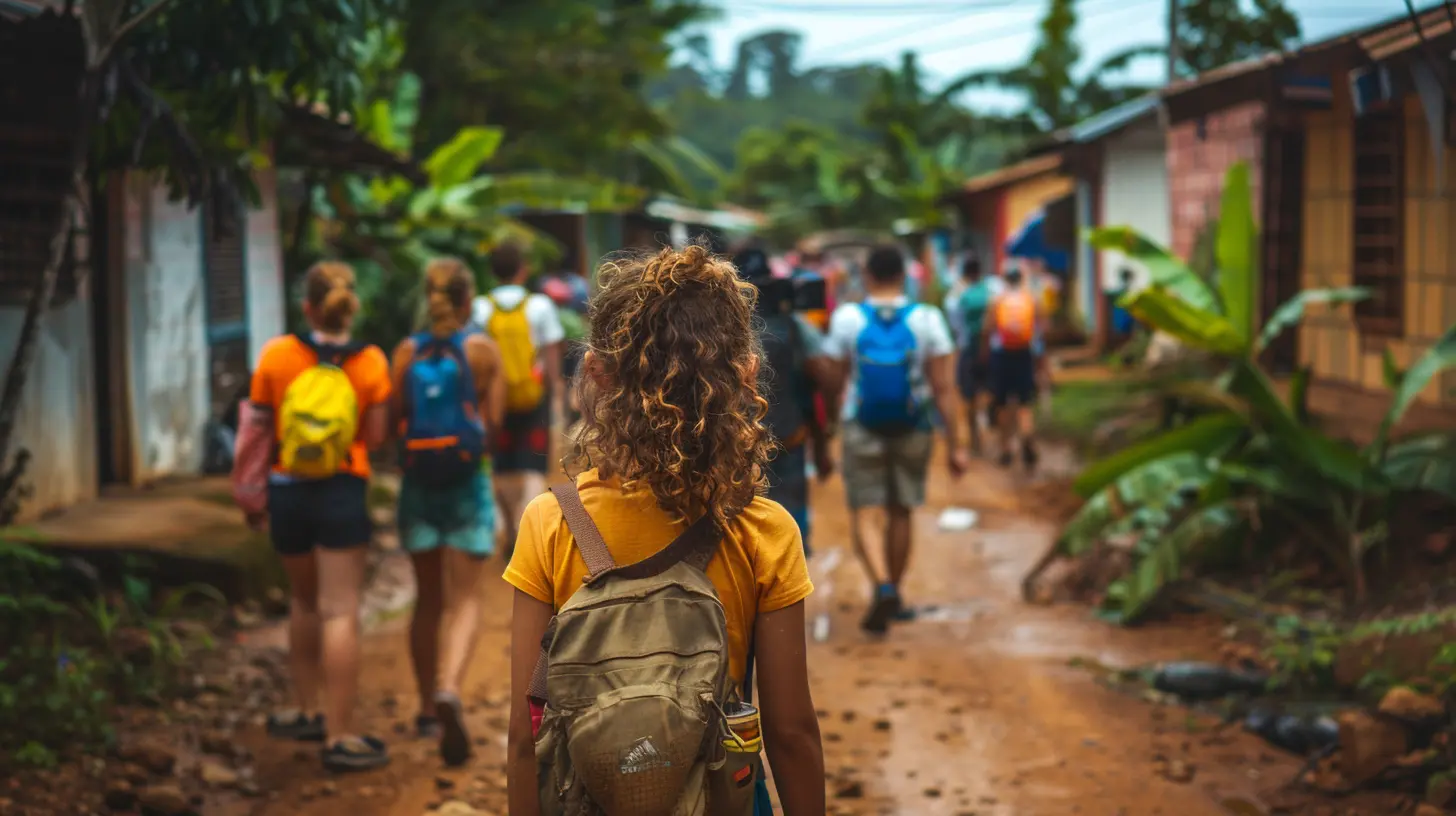
Understanding the Power of Travel in Community Development
Most people see travel as a one-way exchange: tourists spend money, see sights, and leave. But what if, instead of just benefiting the traveler, we could flip that paradigm? Travel can provide significant support for local communities—especially those in developing regions or areas recovering from natural disasters.Imagine dropping a stone into a still pool of water—the ripples spread far and wide. Travel, when done right, works just like that. It has a ripple effect, helping to uplift economies, preserve cultures, and empower individuals. This kind of purposeful travel helps communities in numerous ways, from creating jobs and supporting small businesses to encouraging education and environmental sustainability.
Tourism as a Catalyst for Economic Growth
Let’s talk numbers for a sec. The global travel and tourism industry is a multi-trillion-dollar behemoth. In 2019 alone, it contributed around 10.4% to the global GDP! Now, with that kind of economic power, clearly, tourism presents an incredible opportunity to help communities grow.Local businesses like hotels, restaurants, guides, and transportation services are key beneficiaries. The more tourists visit a location, the more jobs are created—every traveler can indirectly support a whole network of local suppliers. In fact, in some areas, tourism is the single largest source of income, particularly in regions lacking other substantial industries.
For example, in many African and Asian countries, tourism can provide job opportunities that allow locals to make a living wage, support their families, and invest back into their own communities. Consider places like Tanzania, where a significant portion of the economy revolves around travelers coming to witness the Great Migration or ascend Mount Kilimanjaro. Every dollar you spend there doesn’t just go into the pocket of a big tour company—it trickles down to local guides, drivers, artisans, and farmers.
Supporting Small Businesses and Fair Trade
Often, travelers unknowingly spend money at large, multinational chains, but the magic happens when they choose to put their travel dollars into small, locally-owned businesses. These businesses often serve as the backbone of the local economy, offering more authentic and personalized experiences compared to large corporations.When you buy a handcrafted product from a local artisan instead of mass-produced magnets from some big retailer, you're sustaining someone’s livelihood directly. It’s personal. You might even strike up a conversation with the shopkeeper, learn about their craft, and feel connected to the history behind the item. That’s something you can’t get from a mass-produced souvenir.
What You Can Do as a Traveler:
- Choose locally-owned accommodations like homestays or boutique hotels.- Eat at local restaurants that use ingredients sourced from nearby farms.
- Support fair-trade markets and buy directly from artisans and vendors.
- Book tours or activities through local operators rather than international conglomerates.
In doing so, you're not just another visitor coming and going—you’re a part of the community’s story.

Voluntourism: The Pros and Cons
You’ve probably heard of voluntourism, right? The idea sounds great on paper: travel to a developing region, volunteer your time and skills, and make the world a better place. Think of it like combining the best parts of traveling and giving back. But, like with anything else in life, there's a right way and a wrong way to go about it.The Pros: Making an Impact with Your Time and Skills
When done mindfully, voluntourism can have a transformative effect on communities. There are so many organizations offering opportunities for travelers to work on humanitarian projects, help build infrastructure, or teach children. You don’t need to be a certified expert in any field to leave an impression—sometimes, your willingness to help and learn can go a long way.Volunteering abroad can also be a wonderful chance to forge deep connections with locals. When you work side by side with the community, you become more than just a tourist—you’re part of a team with a common goal.
The Cons: The Unintended Harm of Short-Term Volunteering
But here’s where things can get a little dicey. Not all volunteer programs are created equal. Some projects, particularly short-term stints, can unintentionally cause harm—a phenomenon often referred to as the "white savior complex." Essentially, well-meaning travelers may impose temporary solutions without addressing the root causes of the issues at hand.Additionally, some programs may take jobs away from local workers. For instance, if volunteers are brought in to paint a school, what happens to the local painters who could have been hired for that? And in some orphanages, children end up being trafficked or exploited simply to attract donations and volunteers. It’s heartbreaking, but sadly true.
How to Volunteer Responsibly:
- Research the organization you're considering working with—ensure they have long-term, sustainable goals.- Stay away from "volunteer vacations" that offer short-term solutions—projects that aren't meaningful or culturally respectful.
- Ask the tough questions—Is the community involved in the decision-making process? How is your work going to contribute to their long-term well-being?
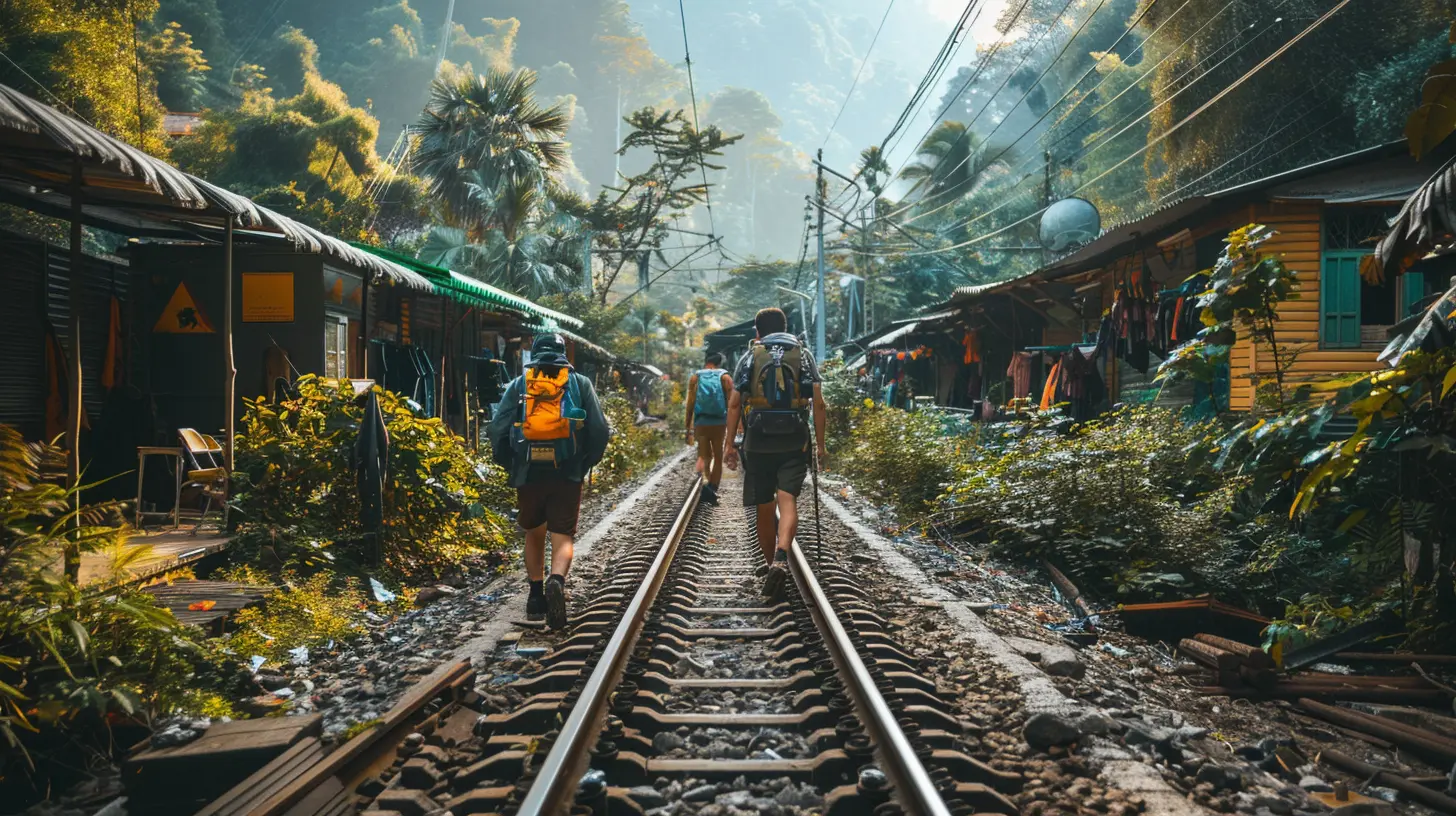
Cultural Preservation Through Tourism
One of the most often overlooked aspects of travel is its role in preserving endangered cultures. In a world that’s increasingly globalized, many communities face the risk of losing their unique customs, languages, and traditions. However, tourism can act as a lifeline to preserve these aspects of cultural heritage, especially when communities can showcase their traditions through festivals, performances, and crafts.Take the Maasai tribe of East Africa as an example. Many tourists visit Kenya and Tanzania to experience the vibrant culture of the Maasai people. By sharing their dances, songs, and artisan crafts, they’re able to generate income while also keeping their heritage alive for future generations.
Still, there’s a fine line between promoting cultural heritage and exploiting it. Responsible tourism focuses on ensuring that the communities have full control over how their culture is shared, and that cultural exchange benefits the local people, both financially and socially.
Ways Travelers Can Respectfully Experience Cultures:
- Participate in local festivals or workshops that are organized by community leaders.- Ask for permission before taking photos, especially of sacred spaces or ceremonies.
- Be mindful of customs and traditions—learn about them before you go, and follow the community’s lead.
By doing so, you contribute to keeping vibrant cultures alive while ensuring that the tourism industry respects and uplifts local traditions.
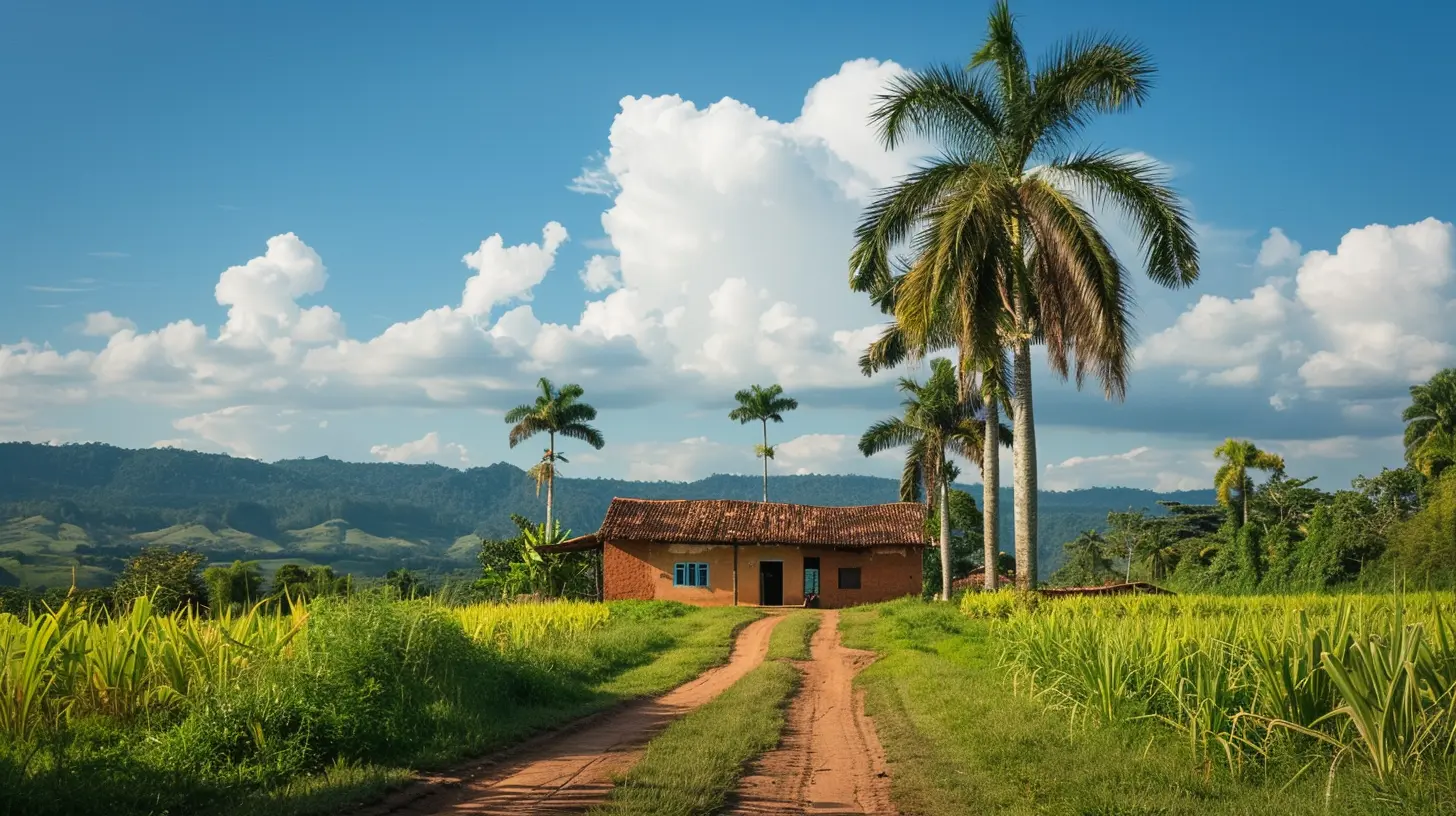
Environmental Sustainability in Travel
Though popular destinations like the Himalayas or the beaches of Bali are beautiful, overtourism can leave a lasting impact on the environment. In fact, some of the world's most loved destinations are facing serious environmental degradation due to the sheer volume of tourists. This is where responsible travel intersects with eco-consciousness.Communities dependent on tourism are often the most vulnerable to environmental changes, and your behavior as a traveler can either help or hurt these fragile ecosystems.
How Can Travel Help Restore the Environment?
Some eco-tourism initiatives are specifically designed to conserve ecosystems while allowing travelers to experience nature in all its glory. From staying at eco-friendly lodges to participating in wildlife restoration projects, tourism dollars can directly fund environmental preservation.In Costa Rica, for example, eco-tourism has been a driving force in conservation efforts. Rainforests that were once in danger of deforestation are now thriving because tourism has provided local communities with an alternative source of income, reducing the need to exploit natural resources.
Tips for Reducing Your Environmental Footprint While Traveling:
- Choose eco-friendly accommodations that implement sustainable practices.- Avoid single-use plastics by carrying your own water bottle and bags.
- Support conservation initiatives by visiting sanctuaries, wildlife reserves, or national parks.
- Use public transport or walk/cycle to minimize carbon emissions.
In this way, you can leave a positive mark on the environment while experiencing the beauty of our planet.
Conclusion: Embrace Travel as a Force for Good
So, what’s the takeaway here? Travel isn’t just a way to get away from your everyday life—it’s a tool you can use to leave the world a little better than when you found it. By choosing to travel slowly, ethically, and responsibly, each of us has the power to uplift communities, protect the environment, and preserve cultures.It doesn’t have to be grand gestures either. Sometimes, the small things—a purchase from a local artisan, a smile exchanged with a shopkeeper, or even mindful voluntary work—can make all the difference. Remember, travel is a two-way street. And when you travel mindfully, it’s a street that leads to positive change for everyone involved.
With that said, the next time you’re planning a trip, think about how you can make your journey not just memorable for yourself, but meaningful for the communities you’ll encounter.
all images in this post were generated using AI tools
Category:
Volunteer TravelAuthor:

Winona Newman
Discussion
rate this article
10 comments
Tala Palmer
This article beautifully highlights the transformative power of travel, showcasing how responsible tourism can uplift communities. By engaging with local cultures and supporting economies, travelers can create lasting positive impacts. A must-read for mindful explorers!
April 6, 2025 at 3:29 PM

Winona Newman
Thank you for your kind words! I'm glad you found the article impactful and highlighting the importance of responsible tourism.
Kaitlyn Cox
Travel can empower local economies, promote cultural exchange, and foster sustainable development in underserved communities.
April 6, 2025 at 3:00 AM

Winona Newman
Absolutely! Travel not only boosts local economies but also enriches cultural understanding and supports sustainable initiatives, making a significant impact in underserved communities.
Daisy McWilliams
This article insightfully highlights the duality of travel as both a privilege and a responsibility. By fostering sustainable practices and supporting local economies, travelers can contribute meaningfully to communities. Ethical tourism not only enriches experiences but also empowers those in need.
April 4, 2025 at 4:54 PM

Winona Newman
Thank you for your thoughtful comment! I’m glad you found the article insightful. Ethical tourism truly has the power to transform communities while enriching our own travel experiences.
Olympia Pruitt
Travel brings joy and support to communities, creating lasting memories and positive change! 🌍❤️✨
April 3, 2025 at 2:45 AM

Winona Newman
Absolutely! Travel not only fosters joy and connection but also empowers communities, creating meaningful change and unforgettable experiences. 🌍❤️✨
Lila Thompson
Who knew wandering the world could double as a superhero gig? 🌍✨ Pack your cape (a.k.a. sunscreen) and dive into the delightful chaos of giving back! Let’s turn our travel tales into tales of transformation—one community at a time. Adventure awaits, cape optional!
April 2, 2025 at 3:23 AM

Winona Newman
Absolutely! Travel can be a powerful tool for positive change. Let’s embrace adventure while making a difference—one community at a time! 🌟✈️
Katherine Rhodes
Travel not only enriches our lives but also empowers communities, fostering sustainable growth and meaningful connections.
March 29, 2025 at 4:01 PM

Winona Newman
Absolutely! Travel can be a powerful catalyst for positive change, benefiting both travelers and the communities they visit.
Wynter Whitaker
Travel transforms lives—both yours and the communities you visit. Explore, connect, and uplift through meaningful journeys!
March 28, 2025 at 5:05 AM

Winona Newman
Absolutely! Travel not only enriches our lives but also empowers communities by fostering understanding and support. It's a powerful tool for positive change!
Mercy Sharpe
Travel: Helping locals, not just selfies!
March 27, 2025 at 5:15 PM

Winona Newman
Absolutely! Responsible travel focuses on empowering local communities, fostering authentic connections, and contributing positively to their wellbeing—far beyond just collecting selfies.
Ryder Vaughn
This article highlights the positive potential of travel to uplift communities while emphasizing the importance of responsible tourism to ensure lasting benefits for all involved.
March 22, 2025 at 6:04 AM

Winona Newman
Thank you! I'm glad you found the article highlights the positive impact of travel and the necessity of responsible tourism for lasting community benefits.
Melanie Jackson
This article presents a thoughtful perspective on the dual impact of travel. While it highlights the potential for tourism to benefit communities in need, it's essential to consider the balance between economic support and the preservation of local culture and resources.
March 21, 2025 at 4:10 PM

Winona Newman
Thank you for your thoughtful comment! I completely agree that balancing economic support with cultural preservation is crucial for sustainable tourism.
MORE POSTS
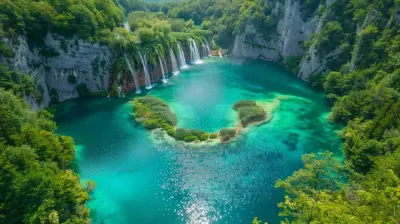
Plitvice Lakes: Croatia’s Stunning Natural Wonderland

The Cultural Significance of the Blue Mosque in Istanbul
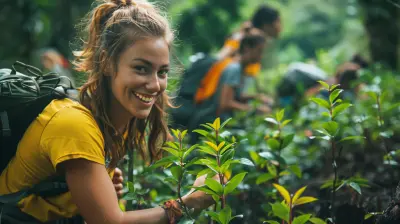
Top Habits of Ethical Travelers: Tips for Responsible Volunteering

Art of the Stay: Hotels with Curated Private Art Collections

Journey Through the Senses: Experiencing Festivals With Local Flavor
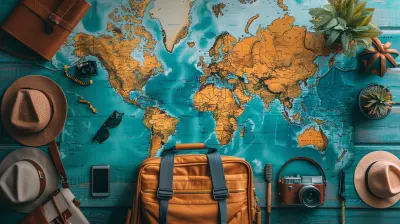
Expert Packing Hacks for Surviving Long Haul Flights
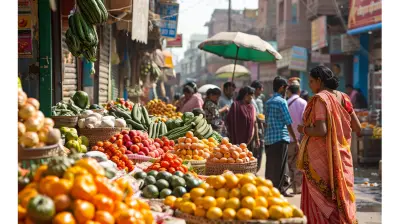
How to Navigate the Bustle of Local Bazaars with Ease